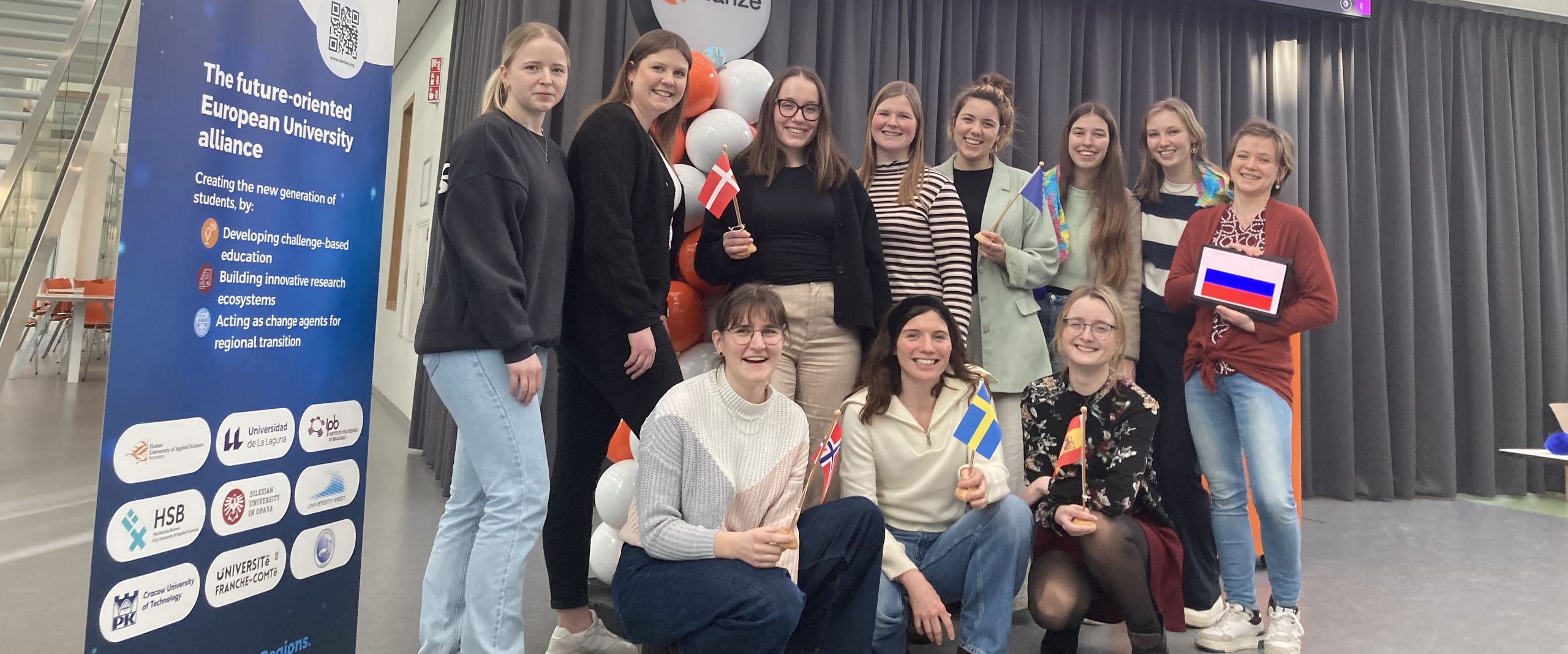
For the second time, students on the International Nursing and Midwifery degree programmes at Hochschule Bremen (HSB) had the opportunity to take part in the Blended Intensive Programme (BIP) at the STARS EU partner university Hanze Hogeschool in Groningen/Netherlands. Prof Dr Babette Müller-Rockstroh (ISHEB) and Prof Dr Sabine Lins (ISPF) were able to make this international experience possible for a total of 13 students, partly with ERASMUS funding. In addition to Germany as the partner university/country, seven students from Bosnia-Herzegovina, ten students from Albania, three students from Belgium, five students from Norway and 22 students from Indonesia also took part. This year, the BIP focused on the question: ‘How can health care professionals contribute to the prevention of non-communicable diseases by targeted eHealth programmes?
Within two weeks, the international mixed groups had the task of dealing with the topic of global health and the prevention possibilities of non-communicable diseases (NCD), analysing their given target group, researching the available evidence and considering a suitable eHealth or digital health intervention for this target group. The first week was conducted online and the second week in person in Groningen.
During the two weeks, the students were able to take part in lectures and workshops and were accompanied by a tutor. Prof Dr Sabine Lins (ISPF) provided methodological input with a presentation entitled ‘What is so special about Cochrane Reviews’ and was a member of the jury that selected the winning group. The winning group developed the concept of an individualised and AI-supported buddy app to support students who find themselves in mentally stressful situations during their studies. The app supports students in selecting and implementing suitable measures, such as relaxation and mindfulness exercises or sporting activities.
The HSB students particularly liked the high standard of the workshops and presentations at the BIP. The supporting programme in the second week was also varied. At the international dinner, for example, the HSB students contributed Ahoi-Brause and cheese and grape skewers as representatives of German culinary delights. This made it possible to overcome many a language barrier and forge friendships.